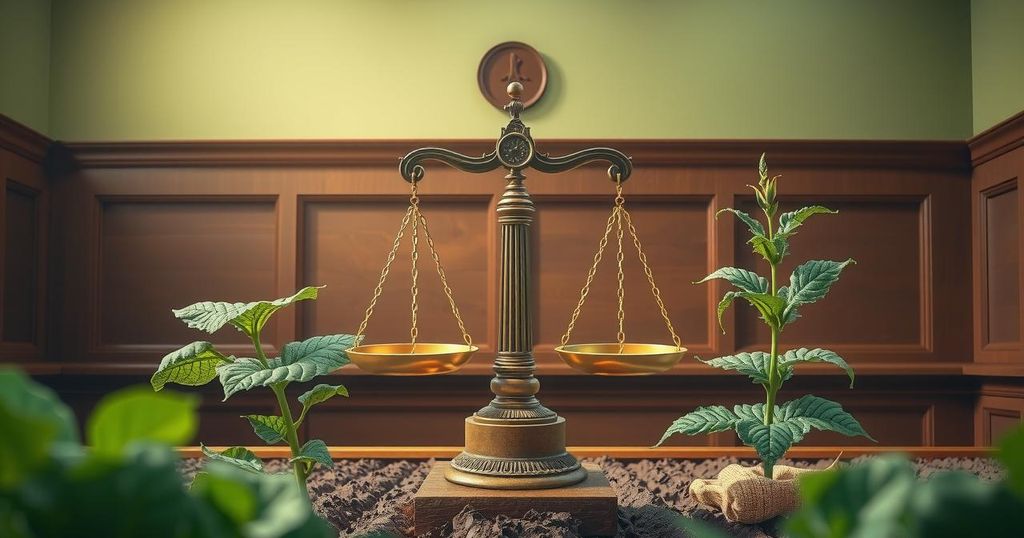Peruvian Farmer Saul Luciano Lliuya’s Landmark Climate Lawsuit Against RWE

Peruvian farmer Saul Luciano Lliuya is suing RWE in Germany, asserting that the company’s historical greenhouse gas emissions have caused significant glacial melt near Huaraz, thus threatening his community with flooding. The trial has the potential to set a precedent for holding major polluters accountable for their contributions to climate change. RWE, however, denies liability and argues climate change should be addressed through state policies rather than legal action.
The legal battle between Peruvian farmer Saul Luciano Lliuya and German energy giant RWE is poised to make a significant impact in climate accountability litigation. The trial, set to take place in a German court, concerns Lliuya’s assertion that RWE’s greenhouse gas emissions have exacerbated climate change, leading to the dangerous melting of glaciers near his home in Huaraz, Peru. This situation has directly threatened his community by causing Lake Palcacocha to swell to perilous levels, heightening the risk of catastrophic flooding.
During a recent court appearance in Hamm, Germany, Mr. Lliuya emphasized the vital role of glaciers in providing water and life, lamenting, “the glaciers are melting, are disappearing bit by bit” and underscoring the danger faced by over 50,000 residents living near the risk of flooding. He expressed his emotional investment in the trial, stating, “We have waited 10 years for this day, this decisive day. I’m very excited; I hope that everything goes well.”
Lliuya’s lead attorney, Roda Verheyen, articulated a sense of cautious optimism, commenting that there is an urgent need for action due to the continuous melting of glaciers. She highlighted RWE’s status as one of the largest carbon dioxide emitters in Europe, indicating that this case could pave the way for similar legal actions against other significant polluters. However, RWE has denied responsibility, claiming that climate change is a multifaceted global issue and asserting that individual companies should not be held liable for its effects.
The court proceedings in Germany will also review insights gained from site visits to Peru conducted by judges and experts in 2022. Their deliberations are expected to assess the potential risks posed to Lliuya’s property by the changing environmental conditions. Final conclusions regarding the case are anticipated to be announced shortly after the hearings, further underscoring the implications of this landmark lawsuit for climate-related litigation and accountability.
In conclusion, Saul Luciano Lliuya’s lawsuit against RWE may set a pivotal legal precedent regarding climate accountability for major polluters. The case, rooted in the urgent threat posed by climate change to vulnerable communities, emphasizes the need for accountability and immediate action to combat environmental degradation. As the trial progresses, the outcome could significantly influence future litigation efforts against corporations contributing to climate change.
Original Source: apnews.com






